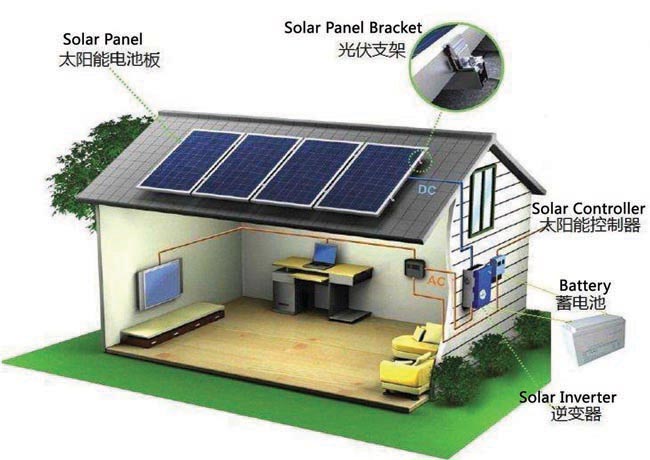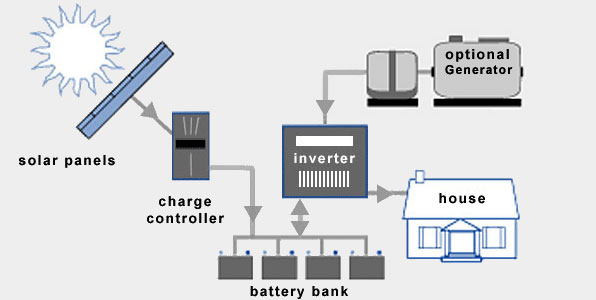Type:Pure Off-Grid Solar Power System 3-10KW
Solar panel:Mono 330W
Inverter & Charging Controller:220VAC Off-Grid
Solar bracket:Aluminum alloy
DC combiner:surge protection
Cables:MC4 standard
| Introduction |
An off-grid solar system (off-the-grid, standalone) is the obvious alternative to one that is grid-tied. For homeowners that have access to the grid, off-grid solar systems are usually out of question. Here`s why:
To ensure access to electricity at all times, off-grid solar systems require battery storage and a backup generator (if you live off-the-grid). On top of this, a battery bank typically needs to be replaced after 10 years. Batteries are complicated, expensive and decrease overall system efficiency.


| Advantages of Off-Grid Solar Systems |
1. No access to the utility grid
Off-grid solar systems can be cheaper than extending power lines in certain remote areas.
2. Become energy self-sufficient
Living off the grid and being self-sufficient feels good. For some people, this feeling feeling is worth more than saving money. Energy self-sufficiency is also a form of security. Power failures on the utility grid do not affect off-grid solar systems.
On the flip side, batteries can only store a certain amount of energy, and during cloudy times, being connected to the grid is actually where the security is. You should install a backup generator to be prepared for these kinds of situations.
| Equipment for Off-Grid Solar Systems |
• Solar Charge Controller
• Battery Bank
• DC Disconnect (additional)
• Off-Grid Inverter
• Backup Generator (optional)
Solar Charge Controller
Good charge controllers are crucial for keeping the batteries healthy, which ensures the lifetime of a battery bank is maximized. If you have a battery-based inverter, chances are that the charge controller is integrated.
Battery Bank
Without a battery bank (or a generator) it’ll be lights out by sunset. A battery bank is essentially a group of batteries wired together.
DC Disconnect Switch
AC and DC safety disconnects are required for all solar systems. For off-grid solar systems, one additional DC disconnect is installed between the battery bank and the off-grid inverter. It is used to switch off the current flowing between these components. This is important for maintenance, troubleshooting and protection against electrical fires.
Off-Grid Inverter
There`s no need for an inverter if you`re only setting up solar panels for your boat, your RV, or something else that runs on DC current. You will need an inverter to convert DC to AC for all other electrical appliances.
Backup Generator
Backup generators typically output AC, which can be sent through the inverter for direct use, or it can be converted into DC for battery storage.
Contact: Mr.Fan
Phone: +86 132 9130 6058
E-mail: chinasunpark@hotmail.com
Add: Yunhelu 136,Changzhou City,Jiangsu,China